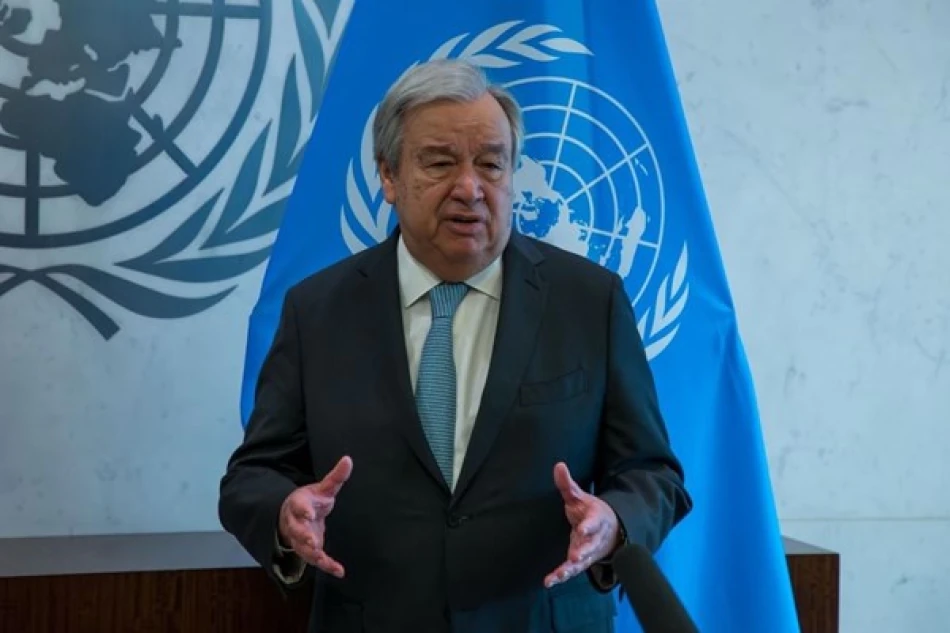
United Nations Welcomes Armenia-Azerbaijan Peace Deal, Hailing Historic Ceasefire Agreement
UN Chief Applauds US-Brokered Armenia-Azerbaijan Agreement as Regional Stability Takes Center Stage
UN Secretary-General António Guterres has welcomed a breakthrough agreement between Armenia and Azerbaijan, mediated by the United States and signed by Azerbaijani President Ilham Aliyev and Armenian Prime Minister Nikol Pashinyan. The deal represents a significant diplomatic achievement in one of the world's most enduring territorial conflicts, potentially reshaping geopolitical dynamics in the strategically vital South Caucasus region.
A Diplomatic Victory Years in the Making
Guterres praised both leaders' commitment to dialogue and confidence-building measures, highlighting their willingness to move beyond decades of hostility. The Secretary-General also commended former US President Donald Trump's efforts in facilitating the agreement, underscoring America's continued influence in mediating complex international disputes despite shifting global power dynamics.
Breaking Decades of Deadlock
The Armenia-Azerbaijan conflict, centered primarily around the disputed Nagorno-Karabakh region, has persisted since the Soviet Union's collapse in 1991. Previous attempts at resolution through the OSCE Minsk Group—co-chaired by Russia, France, and the United States—yielded limited results, making this US-brokered breakthrough particularly significant.
The 2020 war between the two nations, which resulted in Azerbaijan reclaiming significant territory, fundamentally altered the conflict's dynamics. This new agreement appears to build on those changed realities, potentially offering a more sustainable path forward than previous ceasefire arrangements.
Strategic Implications for Regional Powers
Shifting Geopolitical Balance
The successful US mediation carries broader implications for regional influence patterns. Russia, traditionally the dominant mediator in post-Soviet conflicts, finds its role challenged as Washington demonstrates renewed engagement in the South Caucasus. This mirrors similar American diplomatic initiatives in other contested regions, from the Abraham Accords in the Middle East to renewed focus on Indo-Pacific partnerships.
For Turkey, a key Azerbaijan ally, the agreement may solidify Ankara's growing influence in the region while potentially opening new economic corridors. Meanwhile, Iran—which shares borders with both nations—will be watching closely as any stability agreement could affect regional trade routes and energy partnerships.
Economic and Energy Considerations
Beyond territorial disputes, this agreement holds significant implications for European energy security. Azerbaijan serves as a crucial alternative energy supplier to Europe through the Southern Gas Corridor, while Armenia's strategic position could facilitate new transit routes. Reduced regional tensions may accelerate infrastructure projects that have been stalled by security concerns.
The timing proves particularly relevant as global energy markets continue adapting to geopolitical shifts and climate transition demands. Stable South Caucasus partnerships could provide Europe with enhanced energy diversification options while offering both Armenia and Azerbaijan increased economic integration opportunities.
Looking Forward: Challenges and Opportunities
While UN endorsement provides international legitimacy, implementation will face significant hurdles. Public opinion in both countries remains deeply divided, and nationalist political forces may resist compromise measures. The agreement's durability will depend heavily on whether economic benefits materialize quickly enough to build popular support for continued cooperation.
Success here could establish a template for resolving other "frozen conflicts" across the former Soviet space, from Moldova's Transnistria to Georgia's breakaway regions. Conversely, failure might reinforce skepticism about negotiated settlements in post-Soviet territorial disputes, potentially encouraging more unilateral military solutions.
Most Viewed News

 Layla Al Mansoori
Layla Al Mansoori






